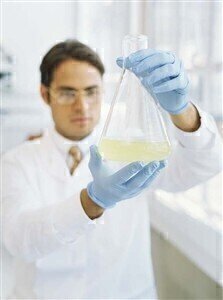News
AA, ICP or ICP-MS – Which Should I Use?
Jul 21 2014
Atomic Absorption (AA), Inductively Coupled Plasma (ICP) and Ion Coupled Plasma Mass Spectrometry (ICP-MS) are three common techniques used for elemental analysis. Elemental analysis is where a sample is analysed to identify and quantify the individual elements or isotopes that make up the sample.
Atomic Absorption Spectrometry
Two main types of AA spectrometry are used and they differ according to the method used to heat the sample:
- FAAS; the sample is heated in a flame
- GFAAS; the sample is heated electrically in a graphite tube
A cathode lamp, chosen to match the chosen element, shines through the gaseous sample atoms on to a detector. The amount of light absorbed by the relevant sample atoms is measured and can be used to determine the quantity of those atoms present in the sample.
Ion Coupled Plasma Atomic Emission Spectrometry (ICP-AES or ICP)
ICP uses a plasma source to vaporize the sample so it breaks down into its individual atoms or ions. This excites the sample so that the atoms or ions emit photons at specific frequencies/wavelengths. A detector measures the intensity of the emitted light and from this the quantity of each atom in the sample can be calculated.
Ion Coupled Plasma Mass Spectrometry (ICP-MS)
ICP-MS is similar to ICP in that the sample is heated using a plasma source. But in ICP-MS, the ions themselves are detected. After the plasma they pass into a MS where they are separated according to their mass/charge ratio and then counted using a detector.
Questions to ask?
Some of the questions you need to consider when choosing a technique include:
- Which element are you trying to detect and in what sample matrix?
- What limits of detection do I need?
- What type of analysis do I need to carry out?
- Do I need to analyse multiple elements in a single sample?
- What levels of precision and accuracy do I need?
- Are there regulatory considerations I need to take into account?
- How easy is the instrument to set-up, maintain and run?
- What are the costs?
- Initial capital costs
- Running costs
- Maintenance and service costs
A few details of the different techniques are shown in the table below.
|
FAAS |
ICP |
ICP-MS |
|
|
Elements applicable to |
68 |
73 |
82 |
|
Detection limits* |
1-100 ppb |
0-10 ppb |
Typically < 1ppt |
|
Sample throughput |
10-15 seconds per element |
6-60 elements/minute |
3-5 minutes (all elements) |
|
Precision |
<10% |
1-5% |
<5% |
|
Sample size |
Large |
Medium |
Small-medium |
|
Automatic operation |
No |
Yes |
Yes |
|
Capital cost (relative to AA) |
1 |
4-6 |
10-20 |
|
Running costs |
Low |
High |
High |
|
Cost per element |
|||
|
High volume – few elements |
Low |
Medium |
Medium |
|
High volume – many elements |
Medium |
Low-Medium |
Low-Medium |
*Detection limits vary between elements.
Each of the techniques has their advantages and it can be a difficult choice to make. This article provides a more detailed overview of elemental analysis techniques: Overview of Most Commonly Used Analytical Techniques for Elemental Analysis and for details about the use of Elemental Analysis for environmental analysis take a look at this news article: Essential Environmental Applications for Trace Elemental Analysis.
Digital Edition
Lab Asia Dec 2025
December 2025
Chromatography Articles- Cutting-edge sample preparation tools help laboratories to stay ahead of the curveMass Spectrometry & Spectroscopy Articles- Unlocking the complexity of metabolomics: Pushi...
View all digital editions
Events
Jan 21 2026 Tokyo, Japan
Jan 28 2026 Tokyo, Japan
Jan 29 2026 New Delhi, India
Feb 07 2026 Boston, MA, USA
Asia Pharma Expo/Asia Lab Expo
Feb 12 2026 Dhaka, Bangladesh



















